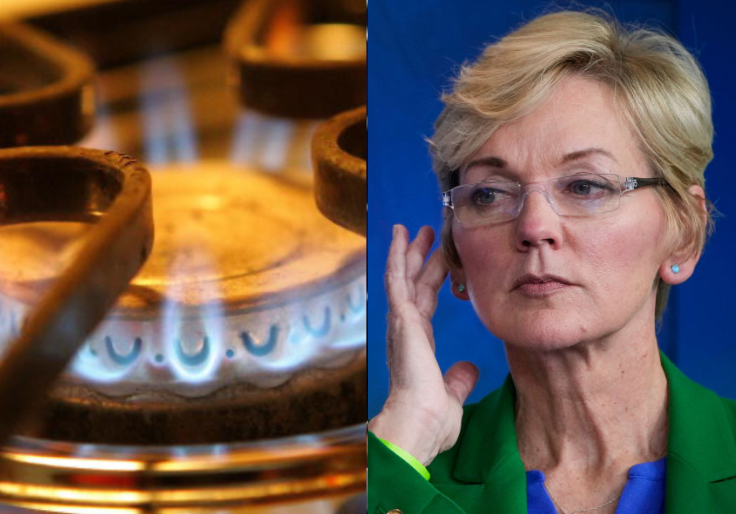The Biden administration's proposed gas stove regulations would force Americans to spend an extra 23 hours a year waiting for water to boil, according to an industry analysis.
The "efficiency" regulations unveiled by President Joe Biden's Energy Department in January would limit high-heat stove burners used for cooking tasks such as boiling water and searing meats, according to the Association of Home Appliance Manufacturers. Without those burners, the association found in an analysis on the impact of the stove regulations, U.S. consumers would spend an extra seven minutes trying to boil more than one pot of water. As a result, those Americans would spend "about 23 additional hours per year waiting for water to boil" under the regulations, the association found.
The regulations are part of a Biden administration push to "confront the global climate crisis" through new appliance energy use standards. In addition to its proposed gas stove rule, the administration in February released new efficiency regulations that would require washing machines to use considerably less water, a mandate that will significantly impact the ability to remove stains and clean clothes quickly. Biden's Energy Department also finalized rules last year that ban the sale of certain light bulbs, and in February, it proposed new efficiency standards for refrigerators.
The Association of Home Appliance Manufacturers says the limits on high-heat burners will decimate "people's access to a safe and affordable cooking method that is preferred by millions of home cooks." "DOE’s proposal is an attack on gas cooking appliances disguised as an energy-saving regulation," association president and CEO Kelly Mariotti said in a statement.
An Energy Department spokesman told the Washington Free Beacon the department is "required by Congress to review appliance energy conservation standards" and will work to "improve the efficiency of household appliances … without sacrificing the reliability and performance that consumers have come to rely on." The department last week took a more aggressive approach in defending its regulations, issuing a press release that said those who claim the rules would lead to less effective appliances are pushing "misinformation."
The release also says it's "absurd" to say the Biden administration "wants to ban gas stoves," with the department arguing that its stove regulations would merely "improve efficiency of gas and electric stoves." In February, however, Biden's Energy Department released an analysis that acknowledged its stove regulations would effectively ban half of all gas stoves on the U.S. market. The Association of Home Appliance Manufacturers, meanwhile, says the rule's impact on the gas stove market would be much more significant, highlighting a December Energy Department test that saw 20 of 21 gas stove models fail to meet the rule's standards.
"Although DOE's statements have been changing and conflicting, the department's original assessment was that the proposed standard would remove 96 percent of existing gas cooking products from the market," the association said last month. "Unfortunately, DOE's proposal would take us back to the kitchens of the past and burden consumers … with longer cook times and less control."
Despite the Energy Department's admission that its rule would limit the gas stove market, Energy Secretary Jennifer Granholm has argued the rule does not amount to a "ban." "There's no ban on gas stoves. I have a gas stove," Granholm said during a March hearing. "It is just about making the existing electric and gas stoves—and all the other appliances—more efficient."
Liberal media outlets have used similar arguments to mock what Republicans called a "war on gas stoves," dismissing those concerns earlier this year as part of an unfounded "right-wing freakout." But New York last week became the first state to ban gas stoves in new buildings, a policy that Democratic governor Kathy Hochul predicted would "eventually" apply nationwide.
"This is where our nation has to go eventually," Hochul said during a May 3 interview. "Just like we had to go … a long time ago to transition from coal as your energy source, we do have to transition. These are clean energy alternatives."
Not all state and local governments have found success in their quest to ban natural gas. The first city to pass such a ban—Berkeley, California—saw the policy overturned by a federal appeals court last month, a ruling that green energy advocates said "could have a chilling effect on states and cities pursuing similar bans."
